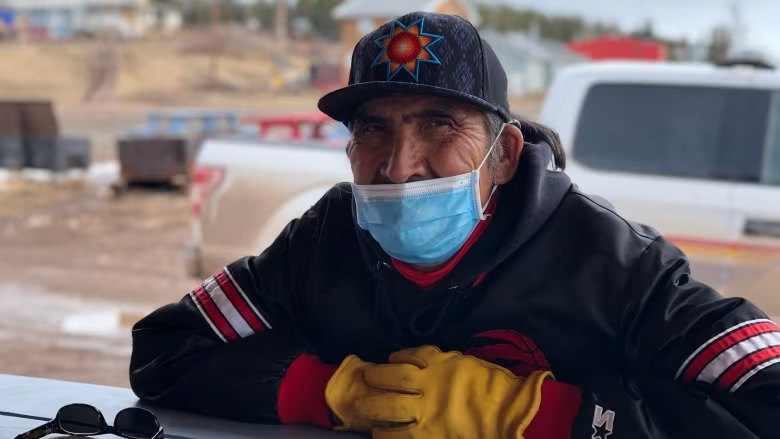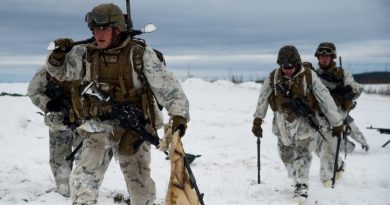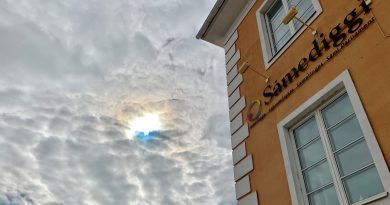From Catholique to Gahdële: Reclaiming Dene name a long journey for N.W.T. man

N.W.T. gov’t permanently waived name-change fee for Indigenous residents earlier this year
J.C. Catholique says his current name is meaningless.
The Łutsel K’e, N.W.T., resident is in the process of reclaiming his traditional name: Gahdële.
“Catholique, you know, has no reference to being Dene or Dënësųłinë́ person,” he said. “But when you say Gahdële, yeah, that means ‘rabbit blood’ … That’s a Dënësųłinë́ name.”
Gahdële says the Catholique name came when missionaries were registering community members.
“To them, [Gahdële] sounds like Catholique, so that’s where we ended up with our name like that.”
Earlier this year, the N.W.T. permanently waived the name-change fee for Indigenous residents. It first decided to do so in 2018 for five years.
“In the past, individuals who helped new parents complete birth registrations in the N.W.T. may have been unfamiliar with Indigenous names so they were spelled incorrectly. Because children had to be registered with the same name as their parents, this spelling mistake may have continued for generations,” explained the territorial government.
The decision came as a direct result of the Truth and Reconciliation Commission’s Call to Action 17.
“Making this process permanent respects the intergenerational impacts of residential schools by allowing Indigenous people to reclaim their names at any point in their lives, and also protecting that ability for future generations,” reads a June news release from the N.W.T. government, about the decision.
Name change ‘journey’
This isn’t Gahdële’s first name change.
His birth name is John Morris Catholique, but he became known as Gabriel Paul Catholique while in residential school in Fort Resolution, N.W.T.
“We were doing a roll call and this name came up … Nobody said anything ’til one of the older guys from Łutsel K’e said, ‘That’s you.'”
He says his grandmother later told him that wasn’t his name.
He obtained his baptism papers and saw John Morris Catholique; he also learned his birthday was June 14, not 15, as he had been celebrating for years.
“It’s quite a process to end up with all these names,” he said. “Kind of an interesting journey.”
Spelling still an issue
Despite the territory’s decision to waive the name-change fee, residents still can’t get legal documents with the traditional spelling of their names.
“Work is continuing to develop a transliteration guide for converting standardized Indigenous characters into letters that all computer systems, affected employees, interjurisdictional partners, contracted vendors, and Indigenous northerners will be able to understand,” reads the territory’s name change webpage.
To be eligible to have the fee waived, residents must have been born in the N.W.T. and still live in the territory. Residents can also only apply to waive the fee once.
Gahdële says a name carries great significance.
“That’s our roots, that’s our identity, that’s who we are,” he said.
He hopes that other residents also go through the process to reclaim their traditional names.
“For the young people growing up, knowing who they are, where they come from, [they] should be proud of who you are, proud of your name,” he said.
According to the N.W.T. government, 113 Indigenous residents have changed their names since October 2018.
-Written by Francis Tessier-Burns with files from Mark Hadlari
Related stories from around the North:
Canada: Canadian Arctic territory sees 29 name changes after waiving fees to reclaim Indigenous names, CBC News




I have to ask why in all of these many CBC articles on myriad Indigenous Peoples, why there is no mention that all of these actions taken by various government agencies and various churches were all/are all part of the centuries long Canadian Genocide, part of the massive American Holocaust.
It’s like CBC all of a sudden makes a huge pretense that they “got religion” but y’all never actually discuss the history of this deeply evil religion/past.
You whitewash both the history of these massive Genocides and CBC’s active and passive role in it all.
Please reply explaining your/CBC’s failure to do what is moral, just and right.
Regards,
Terry